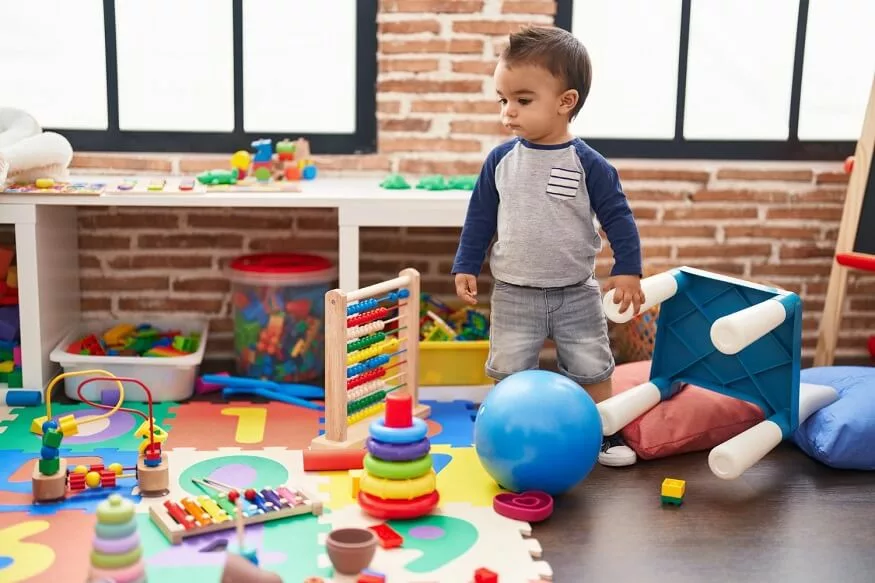Every parent knows that transitions can be tough for toddlers. Whether it’s moving from playtime to bedtime, or transitioning from home to an early childhood education setting, such changes can sometimes be met with resistance. In the realm of education, there’s a vital transition that many might overlook: the move from home or a more informal child care setting to a formal preschool environment. This is where a Toddler Transition Program comes into play.
Understanding the Toddler Transition Program
A Toddler Transition Program, often integrated within early childhood education centres, is designed to help toddlers adjust to the structure and environment of a preschool. Instead of being suddenly thrust into a new setting, children are gradually introduced to the routines, activities, and surroundings of the school. This can include short visits to the preschool classroom, meeting the teachers, or partaking in transition activities specially tailored for them.
The Importance of Smooth Transitions
Emotional Security: Just like adults, children need to feel secure in their environments. Abrupt changes can lead to anxiety and stress. By gradually introducing them to the new environment, the transition program ensures that they feel safe and secure, reducing the chances of separation anxiety or other emotional upsets.
Confidence Building: By familiarising toddlers with the preschool setting through transition activities, they become more confident in their ability to navigate this new world. This boost in self-assurance is crucial as it paves the way for a positive attitude towards learning.
Developing Social Skills: Transition programs offer toddlers an opportunity to interact with peers, even before they officially start preschool. These interactions help in developing essential social skills like sharing, waiting for their turn, and communicating their needs.
The Role of Early Childhood Education Centres
Early childhood education centres (ECEC) are not just about academics; they play a pivotal role in a child’s overall development. Recognising the challenges that transitions pose, many child care centres have integrated transition programs into their curriculum. These centres understand that a successful transition can set the tone for a child’s entire educational journey. Here’s an overview of the roles they serve:
Foundational Learning: ECECs introduce children to basic concepts in literacy, numeracy, and other core subjects, laying the groundwork for future academic pursuits.
Socialisation: These centres provide the first formal environment for children to interact with peers, helping them develop social skills, learn cooperation, and understand the dynamics of group settings.
Emotional Development: Through structured and free-play activities, children learn to understand, express, and manage their emotions. They also develop resilience and learn to handle conflicts.
Cognitive Development: ECECs offer activities that stimulate a child’s thinking, problem-solving skills, and creativity. This fosters an innate curiosity and love for learning.
Physical Development: With playtime and physical activities integrated into their routines, children hone their motor skills and understand the importance of physical fitness.
Cultural and Moral Awareness: Through diverse activities and peer interactions, children gain exposure to different cultures and begin to understand basic ethical and moral principles.
Routine and Discipline: Regular schedules at ECECs instil a sense of routine, time management, and discipline in children from a young age.
Preparation for Formal Schooling: Beyond academic readiness, children learn skills like listening, following instructions, and working in groups – all vital for formal schooling.
Support for Families: ECECs offer guidance to families on child development and parenting. They also provide a safe environment for children when parents are working.
Inclusivity: Many centres now cater to children with special needs, ensuring they receive tailored support and are integrated into mainstream settings.
Lifelong Impact: Research consistently shows that quality early childhood education can lead to long-term benefits in academic achievement, social relationships, and even future earning potential.
Benefits of a Toddler Transition Program
Fostering a Love for Learning: A smooth transition can foster a positive attitude towards school and learning. When children associate school with fun transition activities and positive experiences, they’re more likely to be enthusiastic learners.
Enhanced Parental Involvement: Transition programs often involve parents. This not only helps the child feel more secure, but it also gives parents a clearer understanding of the preschool environment. They get a chance to see the teaching methods, interact with educators, and understand the daily routines.
Tailored Approaches: Every child is unique. Transition programs allow child care centre staff to understand the individual needs of each child better. This personalised approach ensures that each child gets the support they need.
Reduced Anxiety: As mentioned earlier, a gradual introduction reduces the anxiety associated with a new environment. This is beneficial not just for the child but also for parents who might be apprehensive about their toddler starting school.
Incorporating Transition Activities at Home
While early childhood education centres play a primary role in the transition, parents can also incorporate transition activities at home. Transition activities are routines or rituals that help toddlers shift smoothly from one activity to another, avoiding abrupt changes. Abrupt shifts can lead to tantrums or resistance in toddlers. Transition activities provide a buffer.
Examples:
- Move from playtime to bedtime with a bedtime song or short story.
- Signal mealtime with a hand-washing ritual or a mealtime song.
- Transition from indoors to garden time with a ‘treasure hunt’ game or collecting toys together.
Visual Aids: Utilise visual aids like a picture schedule to help toddlers anticipate upcoming activities.
Consistency is Key: The main focus should be on maintaining regular, predictable patterns, rather than the complexity of the activity.
Benefits:
- Provides toddlers with a sense of security.
- Fosters bonding between child and parent.
- Reduces potential stress or resistance during transitions.
Transitioning into a formal educational setting is a significant milestone in a child’s life. As with all transitions, it comes with its set of challenges. However, with the support of a structured transition program and the combined efforts of early childhood education centres and parents, this transition can be a smooth and positive experience.
EuroSchool embraces transition activities for preschoolers and ensures that our toddlers are well-prepared, confident, and eager to embark on their educational journey.










